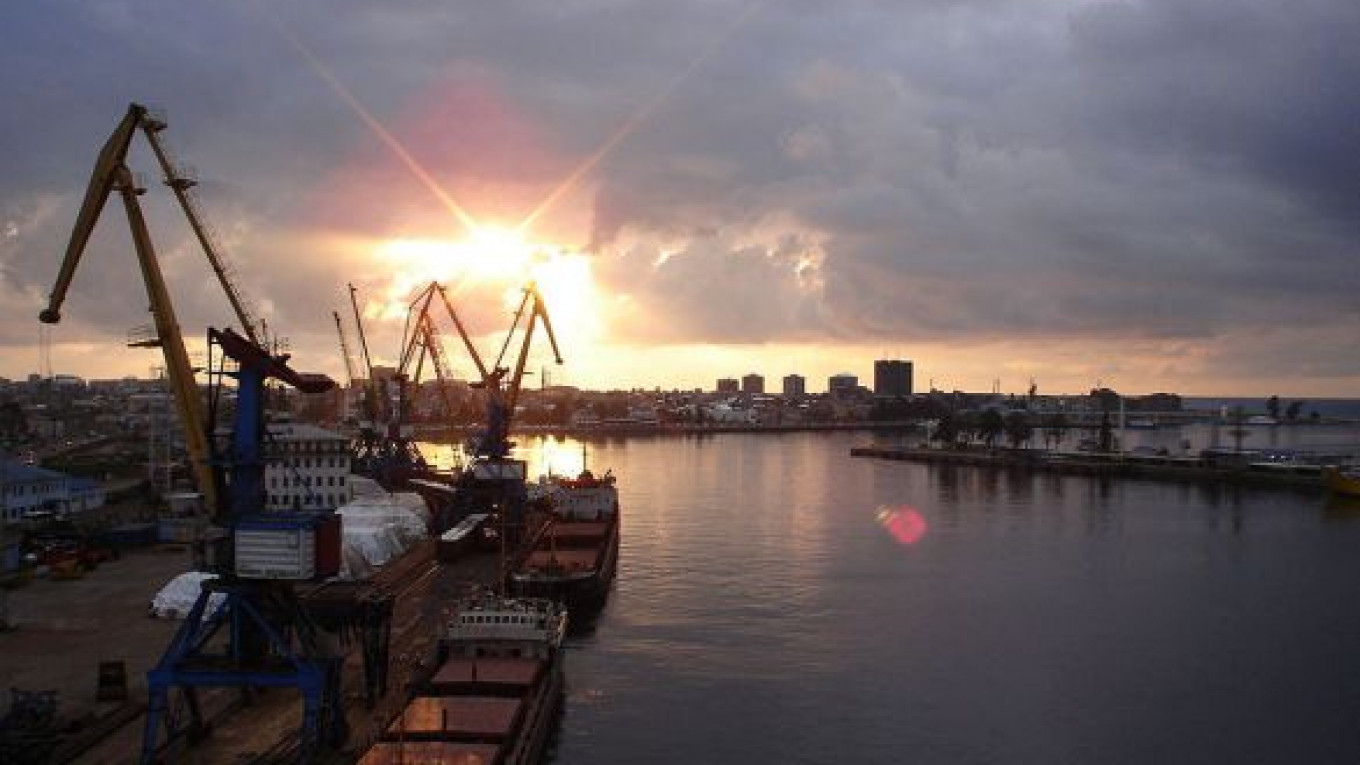TBILISI — Georgia's new economic minister says his country, beset by high unemployment and low per capita output, wants double-digit growth rates in two or three years through the injection of pro-business policies.
It is also striving to restore trade tries with neighboring Russia, which were severed after a 2008 conflict, Georgy Kvirikashvili said an interview.
If Georgia were to mend economic ties with Russia, it might be able to rebuild bilateral trade, which has slumped to just 5 percent of total trade after peaking at 20 percent in 2006. That was before a Kremlin crackdown on imports of Georgian wine and mineral water.
Growth would come from Georgia's measures to boost midsize businesses, dismantle state monopolies, develop the stock exchange and attract foreign investors, Kvirikashvili said.
But it will take time. He forecast growth of 7 percent both this year and in 2013.
Kvirikashvili joined the government formed by billionaire Bidzina Ivanishvili following a shocking Oct. 1 parliamentary election win over the party of President Mikheil Saakashvili, leader of Georgia's democratic Rose Revolution in 2003.
Saakashvili passed market reforms that helped boost growth in the Caucasus state, which suffered civil war and economic collapse after the 1991 breakup of the Soviet Union. But the economy slumped after the brief war with Russia in 2008.
Now Ivanishvili, who built a multifaceted Russian commercial empire worth $6.4 billion before entering politics in his native Georgia, is promising a pro-business environment in the South Caucasus state.
"If a strong medium-sized-business class is created in our country, we expect to reach double-digit GDP growth within two or three years," Kvirikashvili said. "One of our main goals is eliminating monopolies and also protecting property rights, releasing the judicial system from political pressure and creating sustainable legislation."
Construction, tourism and financial services generated high growth from 2004 to 2007, and 24-hour electricity was restored in the country of 4.5 million.
There was also a concerted fight against petty corruption, while public services improved and tax collection became more efficient. In the World Bank's latest Doing Business Index, Georgia was the top-rated country in transition.
However, Georgia faces economic challenges, including a 15 percent jobless rate and economic output per capita that, at $3,230 last year, was lower than that of many former Soviet countries.
Saakashvili's administration also faced criticism from businesses for nurturing monopolies, for excessively meddling in the economy and for failing to provide clarity on tax law.
Experts say breaking up monopolies can stimulate faster growth in Georgia, which is being courted by the West as a key transit route for Caspian oil to Europe but jealously eyed by Russia, which recognized two breakaway regions as independent states in 2008.
The economy has been growing again since 2010, but with the new administration seeking to stimulate growth further, inflation could rise from recent levels of about 1 to 2 percent.
"Inflation is very low and I would say lower than it should be. ... That's why we project 4 to 5 percent annual inflation next year, as this level is normal and will be stimulating growth in business," Kvirikashvili said.
The new government is looking again at floating a 25 percent stake in the state railroad monopoly. The deal is expected to raise $250 million. It was postponed in May due to market volatility.
"We are talking about a 25 percent stake in Georgian Railways. ... I think it will be a good benchmark for foreign investors to assess risks in the country," Kvirikashvili said.
However, he cautioned that market conditions remained uncertain. He said the government also planned to develop the local stock exchange and integrate it with bourses in Eastern Europe.
"There were some preliminary talks with representatives of the Vienna and Warsaw stock exchanges. ... There is big interest from stock exchanges in Eastern Europe, plans for integration with them and merging of our platforms," Kvirikashvili said.
Kvirikashvili said he expected trade ties with Russia to be restored soon, as the government is getting positive signals from Moscow.
"The first positive signal is that Russia issued 1,000 permits to Georgian cargo shippers," he said. "We issued the same number of permits to Russian shippers."
Related articles:
A Message from The Moscow Times:
Dear readers,
We are facing unprecedented challenges. Russia's Prosecutor General's Office has designated The Moscow Times as an "undesirable" organization, criminalizing our work and putting our staff at risk of prosecution. This follows our earlier unjust labeling as a "foreign agent."
These actions are direct attempts to silence independent journalism in Russia. The authorities claim our work "discredits the decisions of the Russian leadership." We see things differently: we strive to provide accurate, unbiased reporting on Russia.
We, the journalists of The Moscow Times, refuse to be silenced. But to continue our work, we need your help.
Your support, no matter how small, makes a world of difference. If you can, please support us monthly starting from just $2. It's quick to set up, and every contribution makes a significant impact.
By supporting The Moscow Times, you're defending open, independent journalism in the face of repression. Thank you for standing with us.
Remind me later.


